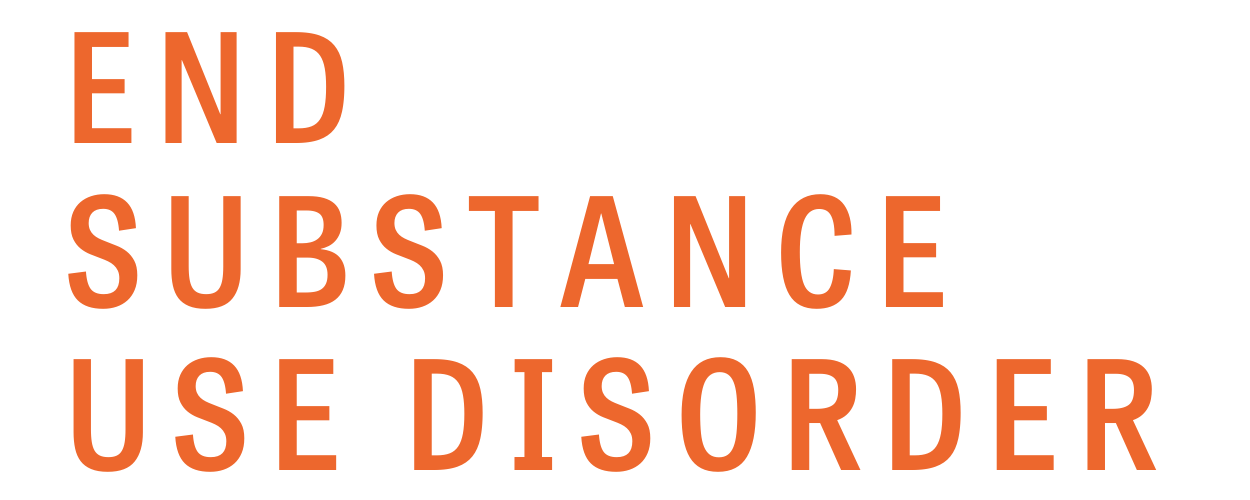End Substance Use Disorder Led Coalition Urges DEA Administrator to Address U.S. Opioid Crisis by Removing Federal X-Waiver
Leading healthcare professionals and organizations representing millions of people ask DEA Administrator Milgram to take immediate action to increase access to buprenorphine.
July 13, 2021 – Washington, D.C. — Today, 66 leading organizations — including healthcare providers, social justice advocates, public health experts, law enforcement and people and families living with substance use disorder — urged the U.S. Drug Enforcement Administration (DEA) Administrator Anne Milgram to immediately call for removal of the federal X-Waiver.
Administrator Milgram takes office amid the worst increase in overdose deaths in decades. In the twelve months leading up to September 2020, more than 90,000 Americans died from overdoses — an average of 247 people per day, a 30% increase from the previous year.
One of the most effective and fastest ways to reduce opioid-related deaths in the United States is by removing restrictions on buprenorphine, a lifesaving recovery medication that has been FDA-approved for the treatment of opioid use disorder for nearly 20 years. The medication prevents painful withdrawal symptoms and helps people with opioid use disorder secure long-term recovery, cutting the risk of overdose death in half.
But due to an outdated federal policy, it is more difficult for patients with opioid use disorder to access buprenorphine than to access prescription opioids like Oxycontin. As few as 1 in 5 Americans with opioid use disorder receive buprenorphine even though the risk of overdose immediately decreases when a patient starts the medication. Under federal law, healthcare providers are subject to burdensome requirements to prescribe buprenorphine to a person with opioid use disorder. To prescribe buprenorphine to a person with opioid use disorder, healthcare providers must register with SAMHSA and the DEA and adhere to strict limits on the number of patients they can treat — an onerous restriction that reduces accessibility in communities where healthcare providers are limited. If healthcare providers need to care for more than 30 patients at a time, they must take 8-24 hours of federally mandated training on the medication and have the ability to refer patients to counseling and ancillary services. These barriers are generally referred to as the “X-Waiver.”
Leading healthcare providers agree that the X-Waiver is an outdated policy that lacks evidence, endangers lives, and stigmatizes both people with opioid use disorder and the treatments that can help them heal. The National Academy of Sciences, Engineering and Medicine has noted that “no evidence base supports the waiver process itself” and has called on Congress to remove these barriers. The time has come for the X-Waiver to be removed in its entirety so all Americans with opioid use disorder have access to safe, effective medication that can help them heal.
“In the midst of an overdose crisis that has torn our communities apart, we are heartened that Administrator Milgram has committed to employing public health solutions to prevent overdoses and support recovery. We believe that Administrator Milgram’s action on the X-Waiver will be a central part of her legacy as the leader of the DEA,” said End Substance Use Disorder President Erin Schanning. “Substance use disorder is a treatable medical condition and when people have access to essential medications like buprenorphine, they heal. We implore Administrator Milgram to recognize the immediate need to prevent overdoses and call for an end to this outdated policy that stigmatizes and restricts access to an essential, lifesaving treatment.”
Read the full letter here.
The following organizations have signed on in support:
American Academy of PAs; American Academy of Physical Medicine and Rehabilitation; American Association of Public Health Physicians; American College of Medical Toxicology; American Jail Association; Americans for Prosperity; Association for Ambulatory Behavioral Healthcare; Association for Behavioral Health and Wellness; Association of American Medical Colleges; Big Cities Health Coalition; College of Healthcare Information Management Executives (CHIME); College of Psychiatric and Neurologic Pharmacists (CPNP); Community Catalyst; End Substance Use Disorder; Global Alliance for Behavioral Health & Social Justice; Healthcare Leadership Council; Law Enforcement Action Partnership; National Association of Attorneys General; National Association of Board of Pharmacy; National Association of Pediatric Nurse Practitioners; National District Attorneys Association; National Families in Action; National Health Care for the Homeless Council; National Health Law Program; National Prevention Science Coalition to Improve Lives; National Safety Council; National Sheriffs’ Association; New Directions Behavioral Health; OCHIN; Pharmaceutical Care Management Association (PCMA); People's Action; Police, Treatment, and Community Collaborative (PTACC); The Kennedy Forum; The National Council for Mental Wellbeing; The Voices Project; Well Being Trust; Young People in Recovery; ARNPs United of Washington State; Assisted Recovery Centers of America; Better Health Together; Blue Mountain Heart to Heart; CARMAHealth; Cascade Pacific Action Alliance; CHOICE Regional Health Network; Community Health Center of Snohomish County; Country Doctor Community Health Centers; Elevate Health; End Overdose Together; Iowa Primary Care Association; Last Overdose; Live4Lali; Monterey County Prescribe Safe Initiative; Neighborcare Health; New Jersey Harm Reduction Coalition; New Jersey Organizing Project; New Jersey Reentry Corp; Ohio Association of Community Health Centers; Olympia Bupe Clinic; PursueCare; Rx Recovery; Showing Up for Racial Justice Ohio; Texas Criminal Justice Coalition; Texas Recovery Network Solutions; USC Institute for Addiction Science; Visiting Nurse Association of Central Jersey; VOCAL-WA
